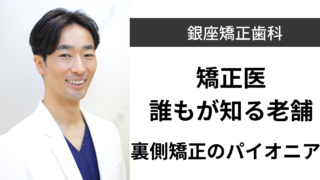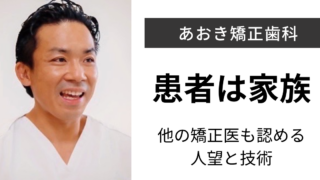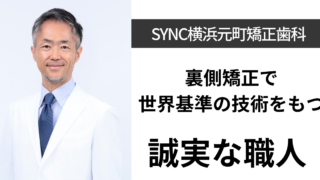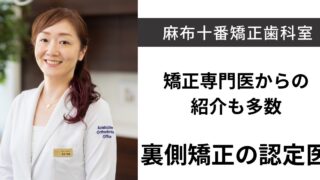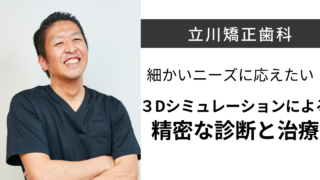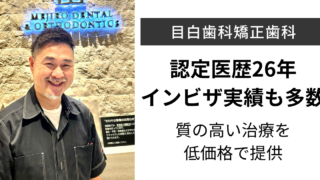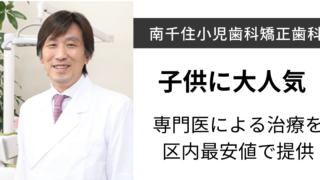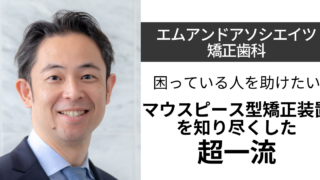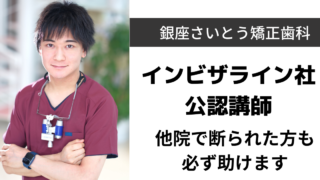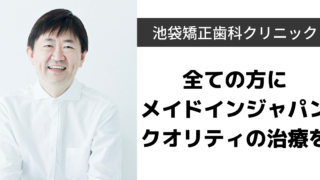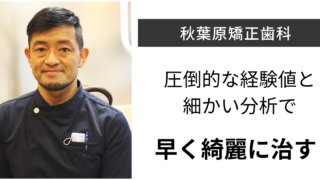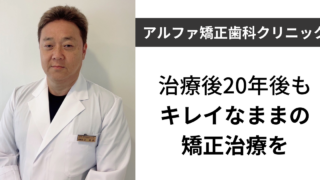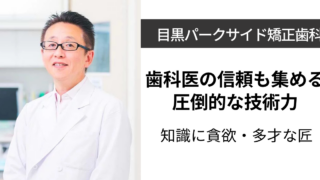
Dentist's Guide to Choosing a Dentist for a Mouthpiece
Today there are more dentists than there are convenience stores, and you may be wondering which dentist you should go to for mouthpiece orthodontics.
Once orthodontic treatment begins, it can take two to three years, which means a long relationship with the clinic.
Also, many of them are expensive, so you must choose a clinic carefully when you sign a contract to start the process.
In this issue, we will give you some pointers on finding a dentist for mouthpiece orthodontic treatment!
Do you have a doctor who specializes in orthodontic training?
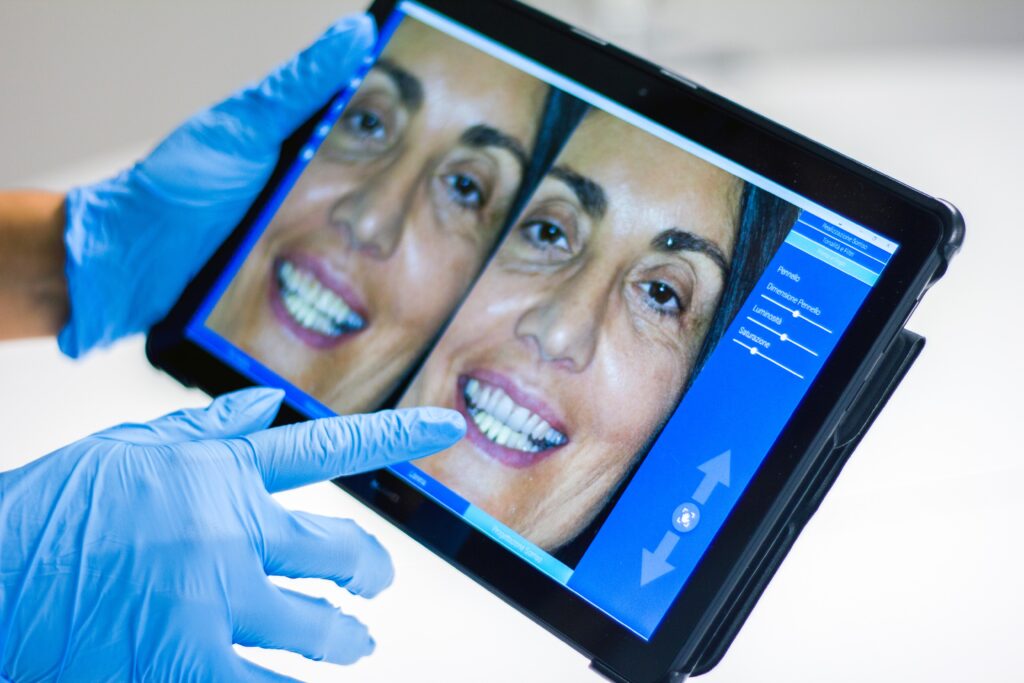
Mouthpiece orthodontic treatment has been introduced by many dental clinics in recent years because it is less burdensome for the patient and more affordable for the clinic.
On the other hand, since no special equipment or techniques are required for treatment, more and more doctors who have no experience in orthodontics are starting treatment casually.
It is easy to tell from the career of the director or the working doctor whether he or she was trained in orthodontic specialties.
Traces of long service in a main orthodontic clinic.and,Evidence of affiliation with a medical clinic, ,Qualifications as a board-certified orthodontist or clinical supervisor of the Japanese Association of Orthodonticsand others may also be helpful.
The Japanese Association of Orthodontics is basically a membership of most people who study orthodontics, and certified orthodontists and clinical supervisors of the Japanese Association of Orthodontics are currently the most prestigious qualifications in the orthodontic field in Japan. In order to become a clinical instructor or a certified orthodontist, one must graduate from a university, complete a residency, study at a specialized institution such as an orthodontic graduate school, and then undergo further training and take an examination.
It takes at least 5 years to become a certified physician and 10 years to become a clinical instructor. After that, you must continue to undergo examinations and renew your certification, or it will expire. It is a tough certification, isn't it?
In other words, there is a clear difference in knowledge and experience in orthodontic treatment between a doctor who has mainly treated cavities and surgery since graduation and a certified orthodontist or clinical instructor who has studied and treated only orthodontics for many years.
Mouthpiece orthodontics is mostly a partnership between dentists and companies.
Originally, although there is a proviso from the company that orthodontic treatment should be performed by a doctor with orthodontic knowledge and experience, the company also wants to increase orders and has not established clear criteria or checks other than dental license when accepting orders.
If a doctor who has never done orthodontic work before self-treats orthodontic treatment,
?looks somewhat good, but has a bad bite
? too rapid movement has killed the nerves.
?Too rapid movement of the teeth caused severe shaking and loss of teeth
?Does not work as scheduled and takes longer period of time
This can lead to unexpected problems such as
In addition, some general clinics also employ orthodontists and clinical supervisors certified by the Japanese Association of Orthodontics on a part-time basis.
Also,Even if they are not board certified or clinical supervisors, there are doctors who have become independent after participating in many seminars on a regular basis and learning a lot and doing a lot of cases.Therefore, it cannot be denied in general, but it is important to note that some teachers do not.
Before starting orthodontic treatment with a mouthpiece, it is recommended to make sure that the clinic is diagnosed and treated by a certified orthodontist or orthodontic specialist.
By the way,Invisalign certified doctor.Certain certified physicians, such asNot the same as the certified orthodontist listed here.Be aware that there are many other certified physicians who can take you through a brief seminar as well.
Is either wire or mouthpiece orthodontics possible?
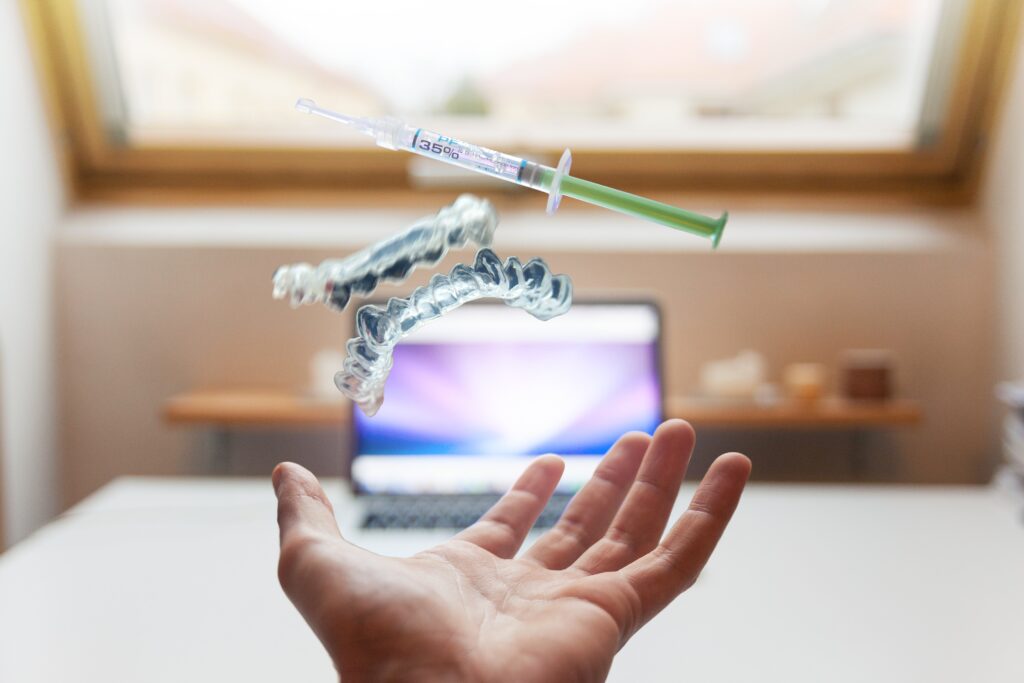
In addition to the advantages of being inconspicuous, painless, and cavity-resistant, mouthpieces do not require special equipment or materials, and are easy to treat.
I would like to encourage you to try mouthpiece orthodontics because it certainly has many advantages,Unfortunately, cases in which the mandible is skeletally forward are not indicatedThe following is a list of the most common problems with the
In addition, in cases where rattling is too severe or teeth grow in a very different way from normal, the treatment period may be significantly longer without the use of wires or implant anchors (a method in which screws are inserted into the jaw to pull them back).
The progress of orthodontic treatment varies from person to person. Even if the clinic does not basically accept patients for wire treatment, it is recommended to choose a clinic that has many options available to draw from, including a combination of wire treatment and treatment with implant anchors if the need arises.
Whether or not a doctor-in-charge is required
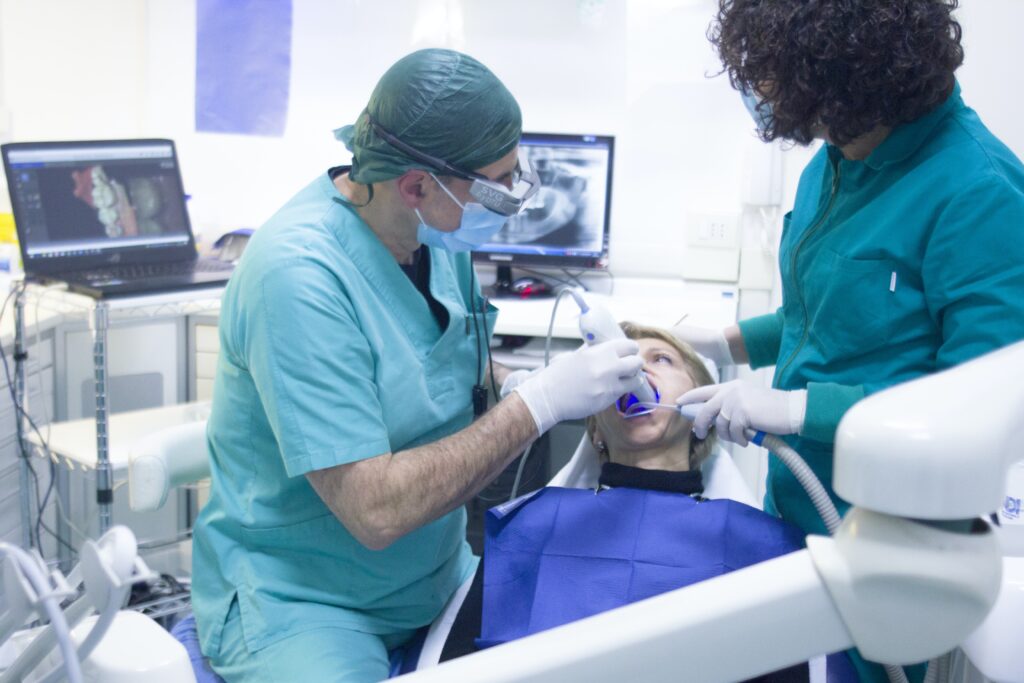
Orthodontic treatment is a major project that can take as little as six months or as long as three to four years from the time of the initial thorough examination to the end of treatment. Therefore, it is often the case that a doctor quits in the middle of the treatment.
However, if there is no one in charge and the doctor changes every time, there is no one to grasp the progress of the treatment and to think about the future prospects, and you may have problems such as treatment not being completed. However, if there is no one in charge and the doctor changes every time, there is a possibility of problems such as not being able to finish the treatment, or the treatment is somehow progressing even though it is not progressing well.
The progress of orthodontic treatment varies from person to person. If the treatment is not progressing well, a new mouthpiece may need to be ordered or the treatment may need to be reworked. Periodic cavity checks will also be performed, and if cavities develop during the course of treatment, the decision to temporarily suspend orthodontic treatment may be necessary.
However, in a clinic where a different doctor is responsible for each patient, it is unclear who is responsible for the treatment, and there may be delays in responding to changes in treatment plan when necessary.
When you have your initial consultation for mouthpiece orthodontics, ask if your doctor will be consistent in his/her treatment.
Are cephalograms analyzed?
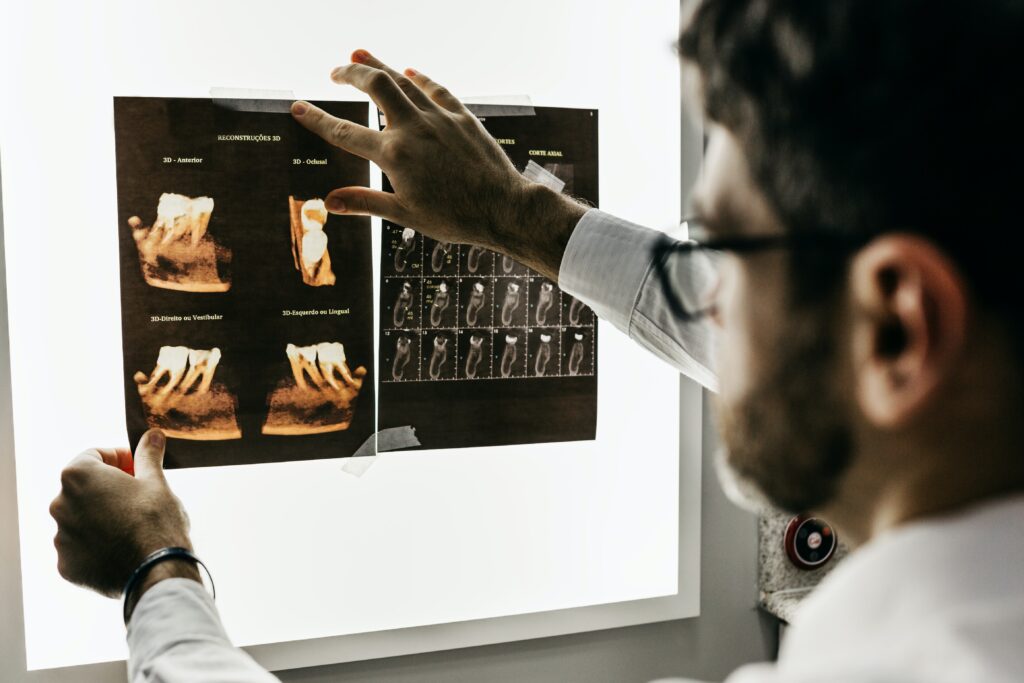
A cephalogram is a radiograph taken to confirm the skeletal position of the jaw. It is a very important examination to see the misalignment of the upper and lower jaws and the balance of the mouth, and must be performed prior to orthodontic treatment to ensure a correct diagnosis.
However, as orthodontic treatment has become more accessible with the spread of mouthpiece orthodontics, some clinics have started to omit the examination and diagnosis.
The cephalogram is an example of an orthodontic diagnostic laboratory test, but there are many other things that should be checked before orthodontic treatment, such as checking for cavities, root inflammation, and periodontal disease.
The key to success with mouthpiece orthodontics is the initial diagnostic examination. Frankly speaking, anyone can perform orthodontic treatment, but not having a thorough diagnostic examination can make a big difference in the outcome.
Before starting mouthpiece orthodontics, make sure that a detailed examination, including a cephalogram, is performed before a diagnosis is made.
Whether there is a warranty period after correction
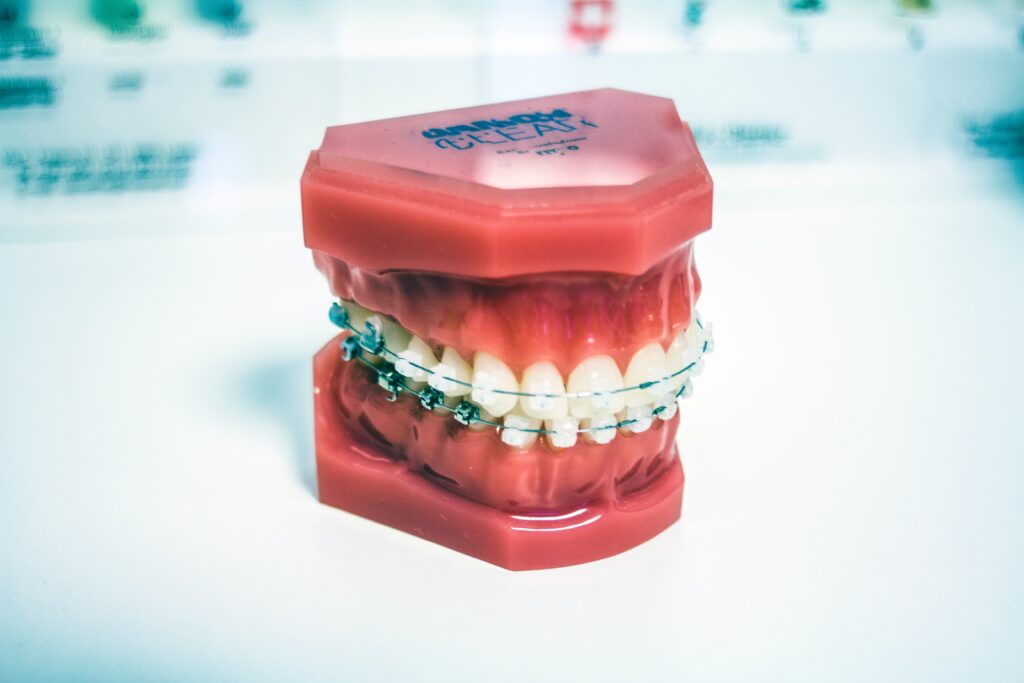
Orthodontic treatment temporarily loosens the bond between the teeth and bone to move the teeth.
Therefore, during and immediately after orthodontic treatment, the teeth are temporarily unstable and wobble when shaken.
basicallyretainerHowever, because teeth tend to move easily in the early period after orthodontic treatment, the teeth may move back even if you wear the retainer as hard as you can.
Most clinics will offer a warranty period and allow re-treatment if the patient regresses within a certain period of time, but there will often be conditions attached, such as only if the patient has come for regular checkups, so it is best to check before signing a contract.
In addition, clinics that offer inexpensive mouthpiece orthodontics may be vague in explaining retainers and warranty periods.
Before starting orthodontic treatment, make sure you are properly informed about post-orthodontic care and warranty periods.
365dentist's LINE open chat is also a great place for people undergoing Invisalign treatment to chat and exchange information. ☺️
Please take a peek!


